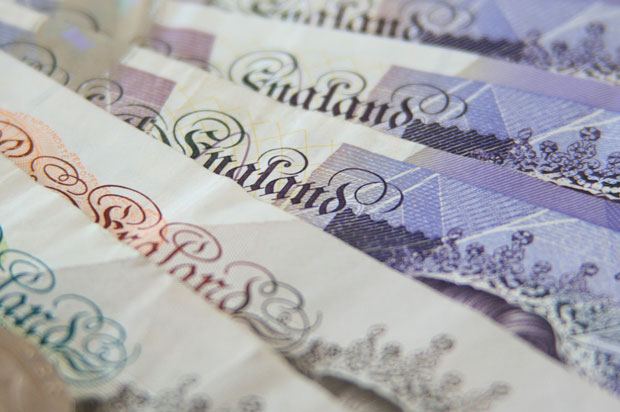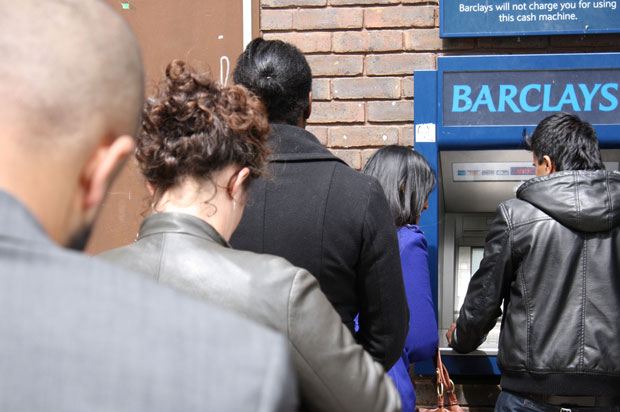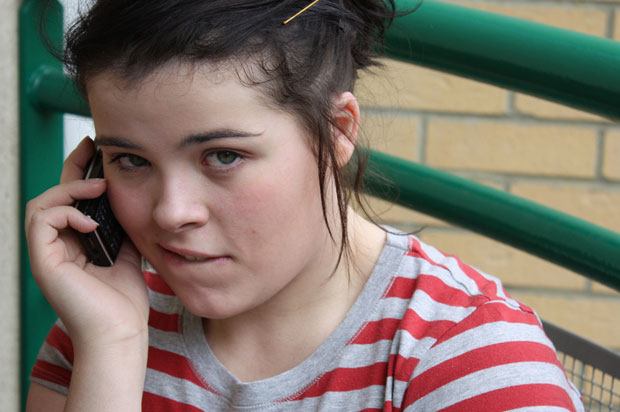Basic bank accounts
The whole point of basic bank accounts is that they're simple and easy to use. You don't need loads of money to open one or a regular paycheque.

The inside of your bank account looks just like this, of course.
Not everyone can get a regular high street bank account. If you’ve got poor credit rating or have a low income, banks may be reluctant to allow you to open a standard current or savings account. You can also have problems opening a new regular account, if you already have one that is overdrawn. If you’ve had these issues a basic bank account is an alternative.
What is a basic bank account?
Basic bank accounts were specifically created to give everyone access to banking facilities. Unlike an ordinary bank account, basic accounts will not allow you to go overdrawn or have a cheque book and it’s unlikely that you’ll get interest paid on your money. But they do give you somewhere to deposit your money and a cash card to withdraw it. Many high street banks and building societies now offer basic bank accounts.
Basic bank accounts have the following features:
- Somewhere to deposit your wages, salary, benefits and tax credits.
- A cash card to make withdrawals from cash machines. Some accounts will give you a debit card that also allows you to make purchases.
- No setup charges or fees associated with the bank.
- You can open an account with no money or as little as £1.
- You can also pay cheques and cash into the account.
- Bills can be paid via direct debit from the account and some banks also allow you to set up standing orders. However, you could be charged if you set up a direct debt and then don’t have enough money to pay for it
How do I open an account?
Your credit history will be checked, and depending on the bank, your application may be declined if you are an undischarged bankrupt or have a history of bad debt. Most banks will automatically refuse those with a history of fraud.
You will need:
- ID, such as a passport or a driving license
- Proof of address, such as a utility or council tax bill
What you need to think about
Before you open a basic bank account, you should make the same checks as you would when choosing a regular bank account.
- Find out how many cash machines you can withdraw money from for free. Banks have different policies about charging for using other banks’ cash machines.
- Some basic bank accounts can be accessed at the Post Office, but check if you want this facility as not all banks offer it.
- How easy is it to get to a branch of your bank during the day? Is there a bank near where you live or work? This is especially important if you are charged for using other cash machines, or can’t get money from a Post Office.
- If you open a basic bank account with a bank that you already have an account with, and that account goes into debt, your bank can take money from your basic account to pay off those debts. For that reason it’s often worth opening your basic bank account with a different bank.
- Make sure the bank understands exactly which account you are applying for, and use the specific name of the account if possible to avoid confusion.
Thanks to CAB for help with this article.
Next Steps
- The Money Helper offers free, unbiased and independent advice about all financial matters. 0800 138 7777
- Chat about this subject on our Discussion Boards.
By
Updated on 29-Sep-2015
No featured article










